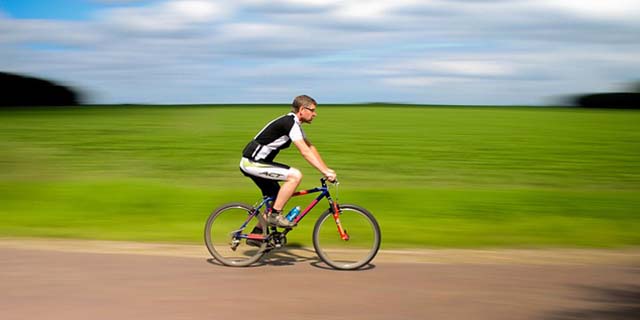
What is Cycling Calorie Calculator?
A Cycling Calorie Calculator is a tool designed to estimate the number of calories burned during cycling activities based on various factors such as distance traveled, speed, duration, and the cyclist's weight. By inputting these variables, users can obtain a more accurate understanding of their energy expenditure while cycling, which can be beneficial for fitness tracking, weight management, or training purposes. These calculators often utilize metabolic equations and data from studies to provide estimates, helping cyclists tailor their nutrition and exercise plans effectively. **Brief Answer:** A Cycling Calorie Calculator estimates calories burned during cycling by considering factors like distance, speed, duration, and the cyclist's weight, aiding in fitness tracking and nutritional planning.
What is Cycling Calorie Calculator?
A Cycling Calorie Calculator is a tool designed to estimate the number of calories burned during cycling activities based on various factors such as distance traveled, speed, duration, and the cyclist's weight. By inputting these variables, users can obtain a more accurate understanding of their energy expenditure while cycling, which can be beneficial for fitness tracking, weight management, or training purposes. These calculators often utilize metabolic equations and data from studies to provide estimates, helping cyclists tailor their nutrition and exercise plans effectively. **Brief Answer:** A Cycling Calorie Calculator estimates calories burned during cycling by considering factors like distance, speed, duration, and the cyclist's weight, aiding in fitness tracking and nutritional planning.


Technique of Cycling Calorie Calculator?
The Technique of Cycling Calorie Calculator is a valuable tool for cyclists aiming to monitor their energy expenditure during rides. This calculator typically takes into account various factors such as the cyclist's weight, duration of the ride, speed, and terrain type to estimate the number of calories burned. By inputting these variables, cyclists can gain insights into their performance and adjust their nutrition and training plans accordingly. Understanding calorie burn not only helps in weight management but also enhances endurance by ensuring that cyclists are fueling their bodies appropriately for their activity levels. **Brief Answer:** The Cycling Calorie Calculator estimates calories burned based on factors like weight, ride duration, speed, and terrain, helping cyclists manage energy expenditure and optimize nutrition for better performance.
Training related to Cycling Calorie Calculator?
Training related to a Cycling Calorie Calculator involves understanding how to accurately estimate the number of calories burned during cycling activities based on various factors such as body weight, cycling speed, duration, and terrain. This training typically includes learning about the metabolic equivalents (METs) associated with different cycling intensities, as well as how to input personal data into the calculator for precise results. Additionally, it may cover the importance of tracking caloric expenditure for weight management, performance improvement, and overall fitness goals. By mastering these concepts, cyclists can make informed decisions about their nutrition and training regimens. **Brief Answer:** Training for a Cycling Calorie Calculator focuses on estimating calorie burn during cycling by considering factors like weight, speed, and duration. It helps cyclists track energy expenditure for better nutrition and performance management.

Advertising space for rent

FAQ
-
What is cycling?Cycling is a physical activity and sport that involves riding a bicycle for exercise, recreation, or competition.
-
What are the health benefits of cycling?Cycling improves cardiovascular fitness, strengthens muscles, enhances flexibility, and aids in weight management.
-
What types of bicycles are there?Common types include road bikes, mountain bikes, hybrid bikes, and electric bikes, each designed for different riding environments.
-
How do I choose the right bicycle?Consider factors like your riding style, terrain, comfort, and budget. Road bikes are good for paved roads, while mountain bikes are designed for rough terrain.
-
What should I wear when cycling?Wear comfortable, moisture-wicking clothing, a helmet, cycling gloves, and padded shorts for comfort and protection.
-
How do I stay safe while cycling?Always wear a helmet, follow traffic rules, use lights and reflectors at night, and ensure your bike is well-maintained.
-
What is the best way to train for cycling?Training involves building endurance with long rides, improving strength through intervals, and working on technique with drills.
-
How does cycling compare to running for fitness?Both activities improve cardiovascular health, but cycling is lower impact on the joints, making it easier on the knees and hips.
-
What should I eat before and after cycling?Before cycling, consume a light meal rich in carbohydrates. After cycling, eat a mix of carbohydrates and protein to aid recovery.
-
What are cycling events and races?Events range from local charity rides to professional races like the Tour de France, which is one of the most famous cycling competitions in the world.
-
How do I improve my cycling performance?To improve, focus on building endurance, increasing speed with interval training, and ensuring proper bike fit and technique.
-
What is a bike fit?A bike fit involves adjusting your bicycle to suit your body measurements, helping to improve comfort, prevent injuries, and enhance performance.
-
How can I maintain my bicycle?Regular maintenance includes checking tire pressure, lubricating the chain, cleaning the bike, and ensuring brakes and gears are functioning correctly.
-
What is the difference between road bikes and mountain bikes?Road bikes are lightweight and optimized for smooth, paved roads, while mountain bikes are designed for rugged terrain with suspension systems and wider tires.
-
How do I protect the environment while cycling?Cycling is an eco-friendly mode of transportation that reduces carbon emissions. Ensure to maintain your bike, avoid littering, and choose eco-friendly products.
